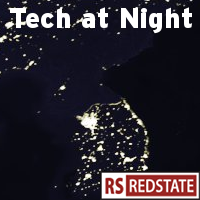
On Friday, I was assured in the comments that Google didn’t actually want to gather any data, that it was purely accidental and not “a conspiracy.” Oops: Google is actually seeking even more Wifi data through the FCC.
Also, Darrell Issa isn’t letting the Andrew McLaughlin scandal die quietly, and Google’s need for insider Net Neutrality lobbying may become apparent in Tech at Night for Monday.
Yup, tonight’s all about Google. The current claim, after the initial claim that no data was gathered, is that a “glitch” in the recording of WiFi network statistics resulted in the storage of a large amount of private data from personal WiFi networks in homes. So now Google is asking the FCC for all the data it can get about the technical performance of such networks.
Of course, how will the FCC collect this data? Most likely by doing the same kinds of spying. Secure your networks folks, the government spy vans are coming. I know: Google, FCC, and Net Neutrality apologists will come say “Relax, they’re only going to scan public networks provided by companies like Starbucks.” Except a receiver can’t tell who’s broadcasting a network until that network’s already been scanned and recorded.
As Google seeks information about you, Darrell Issa seeks information about Google and the White House. Andrew McLaughlin did wrong when he acted as an agent for Google from within the White House; this is not in dispute as he has been officially reprimanded for his misbehavior. Representative Issa says that’s not enough though: it’s not enough information on what he did wrong, and it’s probably not enough punishment for what he did, either, so he wants to know more. Says The Hill:
Issa noted that messages sent on private e-mail accounts or through Facebook and Twitter are not captured and archived by the White House under the Presidential Records Act. He said he is concerned about reports that White House staffers may be contacting lobbyists through private accounts.
In the letter, Issa asked Google’s federal director Michael Bradshaw to provide information by July 20 on Google’s policy for retaining private e-mails, how long e-mails are retained by a Gmail account, how Google would react if subpoenaed by a law enforcement agency, and whether the White House or any federal agency has contacted the company about the retention of e-mails sent by personnel.
After all, this is supposed to be the great transparent administration, isn’t it? And Google, being a funder of the Sunlight Foundation, should support transparency in its dealings with the government as well, no?
But maybe not. We may be finding out why Google wants ISPs regulated so tightly: YouTube. This report’s regulatory implications were easy to miss in the hoopla about super HD video, but they are present: YouTube is to support videos at “4k” resolution. “4k” is what Google is calling 4096×3072 resolution, which contains six times the pixels of 1080p HD (1920×1080).
As far as I know, no service exists today which sends out as much video at BluRay resolutions as YouTube is planning to put out at 6 times that rate, which means the bandwidth demands Google is planning to make are unprecedented on the open Internet. It sure would make life easier for Google if people didn’t have to pay for that use, due to strict price controls allowed by the FCC’s planned Title II reclassification of ISPs in America. Wouldn’t it?
I wonder what emails Vint Cerf, Google’s paid “Internet Evangelist,” and Andrew McLaughlin are trading on that topic.
Oh, and about the title? LMGTFY.